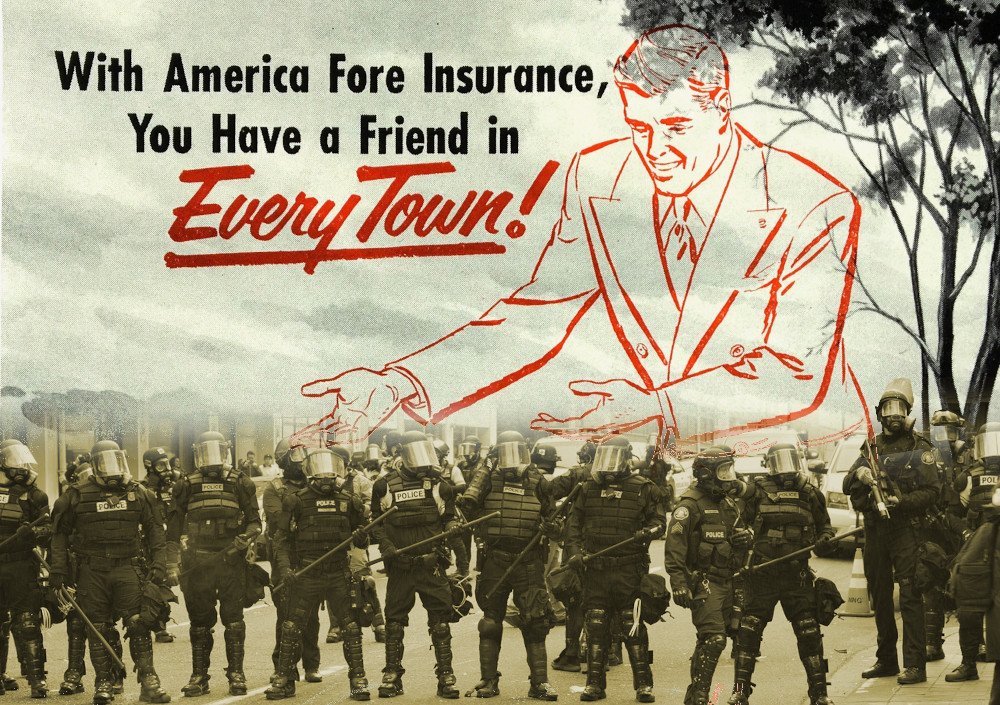When US police officers murder, maim, torture or rape people, the individual officers often escape consequences, but that isn't the end of it. Frequently, the victims of police misconduct sue and receive multi-million-dollar judgements or settlements from their cities.
1/
1/
We talk about these payouts as though they were coming from the city's coffers, but for most US cities - especially smaller ones - the payout comes from an insurer, which groups small police departments into "risk pools" and pays out judgments and settlements for misconduct.
2/
2/
Insurers don't like making vast payouts because Officer Snowflake was triggered by a "disrespectful" skateboarder and got frisky with his baton, and they have a powerful way to make their displeasure felt: demanding reforms on pain of losing coverage.
https://www.nbcnews.com/news/us-news/hidden-hand-uses-money-reform-troubled-police-departments-n1233495?cid=eml_nbn_20200719
3/
https://www.nbcnews.com/news/us-news/hidden-hand-uses-money-reform-troubled-police-departments-n1233495?cid=eml_nbn_20200719
3/
Quiet insurance negotiations are a secret engine of transformative police reforms in cities across America. Insurers can demand the dismissal of officers (and even, in at least one case, a police chief!), new hiring and training procedures, and more.
4/
4/
And when insurers withdraw from a city altogether, the city usually has no choice but to disband its entire police force, turning over policing functions to state troopers.
5/
5/
On the whole, this is a positive phenomenon. Cities that lose their liability insurance tend to be free-fire zones for the very dirtiest, most violent cops.
6/
6/
Consider the one-square-mile town of Maywood CA, whose police corruption had triggered (unsuccessful) reform bids from the city council, the state AG, and the LA Times.
7/
7/
"A haven for misfit cops who had been pushed out of other law enforcement agencies for crimes or serious misconduct" - @latimes
"Gross misconduct and widespread abuse including unlawful use of force against civilians." -California AG Xavier Becerra
8/
"Gross misconduct and widespread abuse including unlawful use of force against civilians." -California AG Xavier Becerra
8/
Where the press, the city and state failed, the insurer succeeded. After $17.3m worth of claims in 5 years, its insurer demanded a "performance improvement plan" from Maywood PD, which it failed to satisfy. The city lost its insurance - and dissolved the police department.
9/
9/
But before you get too excited, note that there are limits to the power of insurers to serve as surrogates for a failed political process: first, insurers are weirdly laissez-faire when it comes to police misconduct.
10/
10/
Sure, they'll step in when things are farcically bad, but there are plenty of cities whose cops engage in ghastly, brutal (and expensive) misconduct whose insurers continue to write policies for.
11/
11/
In part, that's because of wide variation in local laws, which creates variance in liability itself.
But mostly it's because it's so hard to sue cops, even for the most awful and obvious misconduct.
12/
But mostly it's because it's so hard to sue cops, even for the most awful and obvious misconduct.
12/
Insurers don't withdraw coverage because they're aghast at bad behavior - they do it to save money. If dirty cops can get away with illegal conduct, insurers are happy to continue to write insurance policies for their departments.
13/
13/
On the other hand, this points to a vast force-multiplier effect from changes to law that make it easier to sue cops - such changes would trigger massive crackdowns from insurers, who would insist on better behvaior on pain of loss of coverage.
14/
14/
But even if that happens, insurers are still a wildly imperfect proxy for effective police governance and oversight.
To understand how, consider the tale of Inkster, MI, a suburb of Detroit.
15/
To understand how, consider the tale of Inkster, MI, a suburb of Detroit.
15/
Inkster is a desperately poor place, a "slum lord heaven" and its history of criminal conduct by its police force meant that the only liability policy it could afford came with a $2m deductible.
16/
16/
When one of Inkster's cops savagely beat and tasered a Black man named Floyd Dent, in full view of a cruiser's dashcam, Dent won a $1.4m settlement. It was more than the city could afford, and it had to raise property taxes on every resident to make the payment.
17/
17/
Now, Inkster is mostly policed by the Michigan State Police. As the formerly incarcerated Inkster resident James Gibson told NBC: "You changed the local department, but you've now got a city full of state police who don't know me and don't know Inkster.
18/
18/
"So now there's no schools, but more cops. It's the opposite of what you do when you want to improve the community."
eof/
eof/

 Read on Twitter
Read on Twitter


